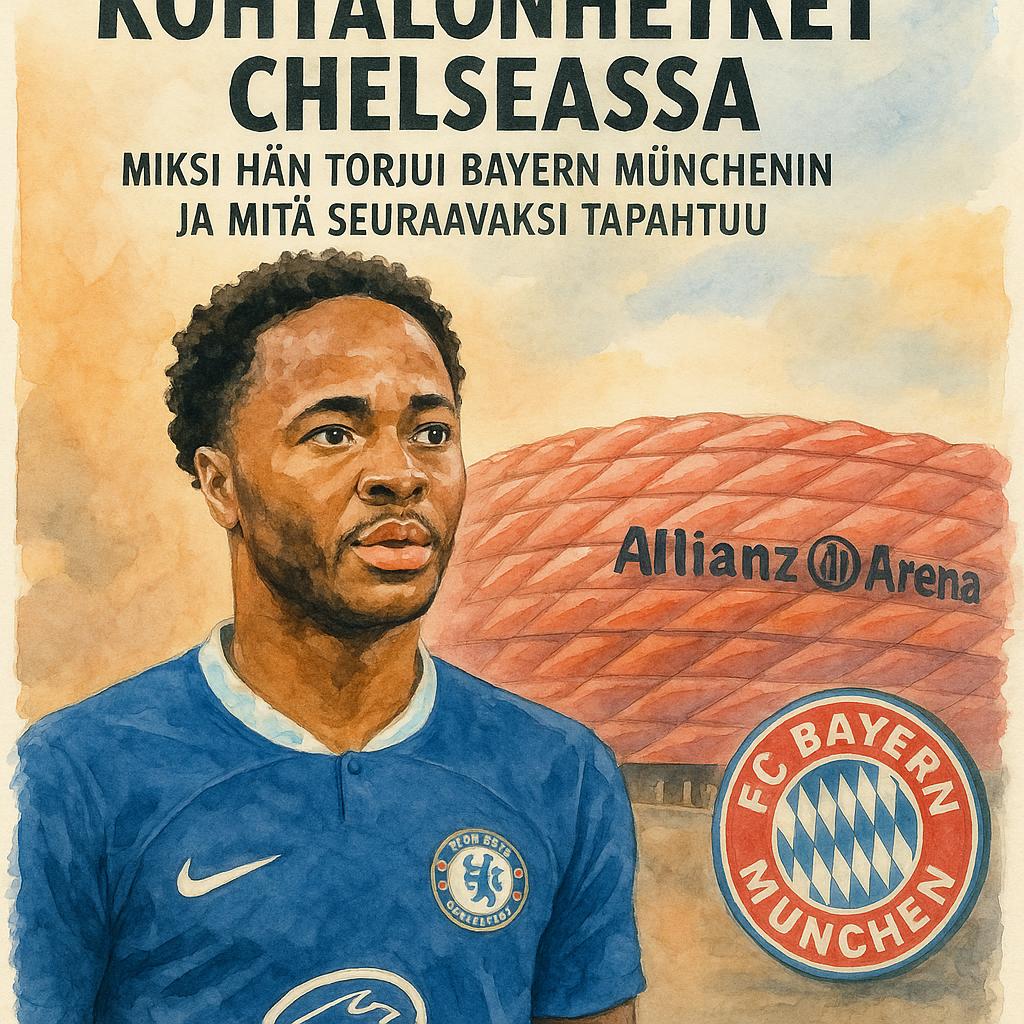Raheem Sterlingin kohtalonhetket Chelseassa Miksi hän torjui Bayern Münchenin ja mitä seuraavaksi tapahtuu
At Chelsea’s Cobham training ground, Raheem Sterling sometimes cuts a lonely figure. Just a couple of years ago, he was the marquee signing meant to spearhead the club’s next big project. Now, at 30, he’s been nudged aside, left training not with the first team but with other outcasts—and even, at times, with the under‑21s.
But this isn’t just another story of an aging star winding down. It’s a story of choices, family, and the strange drift of a career that once seemed destined only for the top.
Bayern’s call that never went through
Last summer, as the transfer window creaked shut, Bayern Munich came knocking. The German giants, desperate to add extra firepower, wanted Sterling on loan. For the player, it could have been a dramatic reset: a chance to join one of Europe’s most stable winners, a clubhouse that practically guarantees Champions League football.
But Sterling said no. And, according to The Athletic, it wasn’t about money—it was about life outside the pitch. The England international didn’t want to uproot his family, who are firmly settled in London. He wasn’t eager to shuttle them to Germany, nor to spend a season living away from them. Add in doubts about whether Bayern, with its crowded stable of stars, would even guarantee him a serious role, and the move stopped making sense.
Chelsea has made its stance clear
If rejecting Munich was a personal choice, what’s unfolding at Chelsea feels far less voluntary. New boss Enzo Maresca has quietly written Sterling out of his plans. The winger no longer trains with the senior squad, an unmistakable message from the club: they would rather ease his hefty contract—reportedly around €16 million a year—off the books.
To keep him fit—and perhaps marketable—Sterling has been joining sessions with the U21s. He hasn’t kicked up a fuss in public, but when he posted a late‑night training photo to social media, it read like a quiet signal: he’s on the fringes, not in the fold. Even England’s players’ union, the PFA, has stepped in to ask Chelsea whether the former national team regular is being treated fairly.
Stuck between rejection and reinvention
The picture is complicated. Sterling turned down Bayern—an opportunity many would see as a golden ticket—because family mattered more than football. At the same time, he’s marooned at Chelsea, carrying a star’s salary but nowhere close to a starring role.
That leaves January looming as a crossroads. Premier League rivals may sense an opportunity, watching whether Sterling fancies a fresh start a little closer to home. A move abroad could still happen, but Germany at least appears off the table.
A big signing, a fading return
It’s worth remembering how different this seemed in 2022. Chelsea paid nearly €60 million to wrest Sterling from Manchester City and gave him the stage to be the experienced leader of a young, ambitious squad. But his spark has flickered. Performances have rarely reached those heights from his City days, and in the ruthless economy of football, patience is thin—especially when accompanied by a wage bill that the club is desperate to shrink.
The question now
So here he is: a Champions League winner, a Premier League veteran, still only 30, yet standing outside the picture at the club that once saw him as a pillar.
The choice that looms isn’t just about contracts and managers. It’s about where Sterling still sees himself: chasing one more big foreign adventure, or staying put in the Premier League, where family life and familiar turf might count for more than silverware.
⚽ What do you think? Has Sterling got one last chapter abroad in him—or is England, for all its chaos, still the place where his story belongs?
